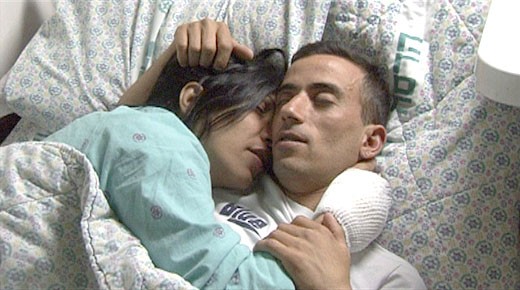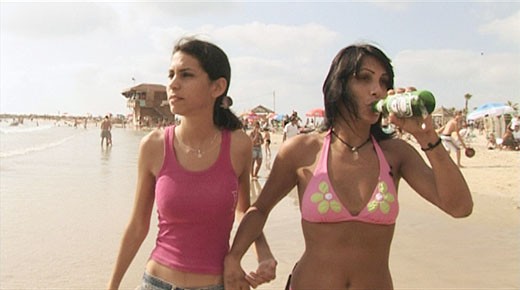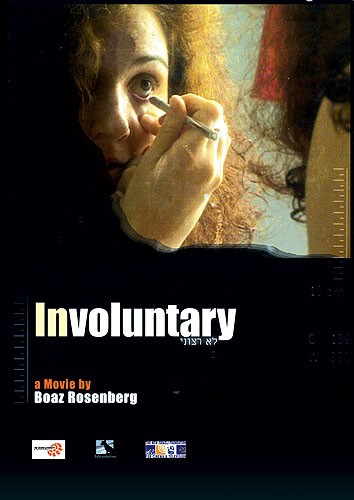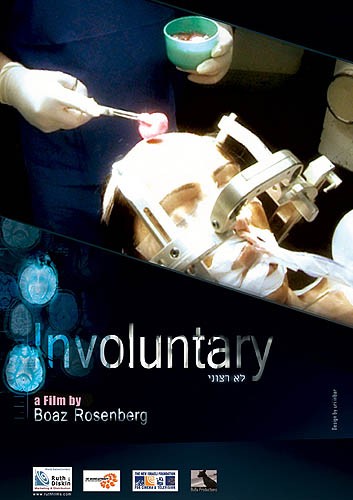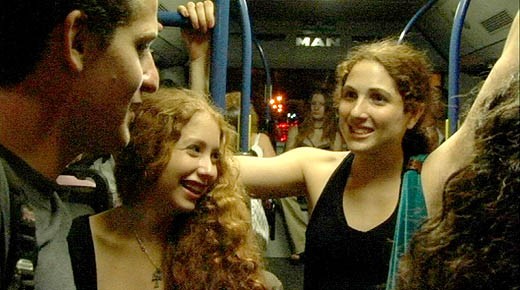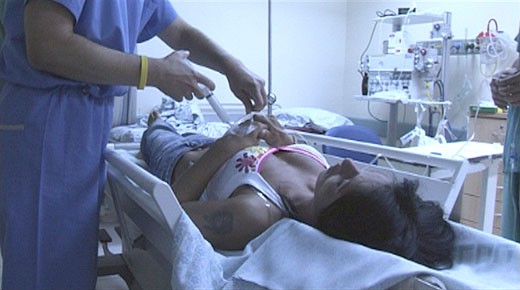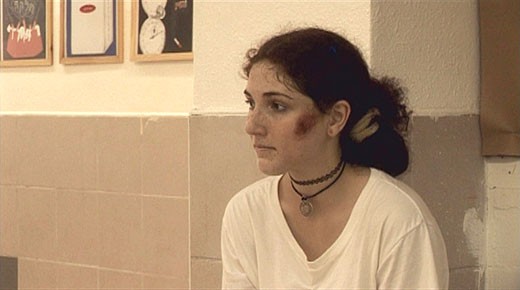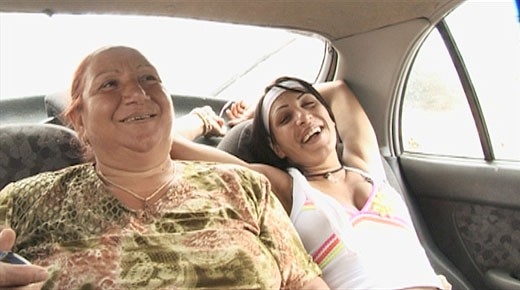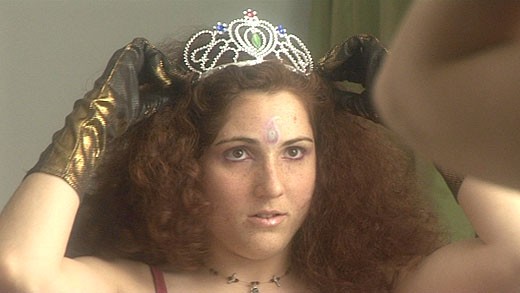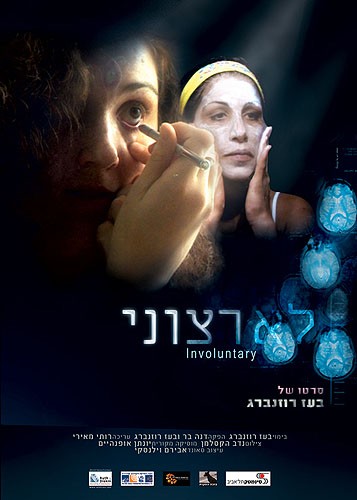Alin and Shani are two young Israeli women. Inside them exists a monster that is threatening to burst at any time, it is called Tourette Syndrome and the two are suffering from it in the most severe and extreme way. Alin (30) is living on the edge, wild and rebellious, loves to drink and have a good time. Shani (18) is sweet and intelligent but suffers from social isolation. The worlds of the two are entirely different: Alin comes from the slums of Haifa whereas Shani is a "good girl" from the suburb Ariel. The director Boaz Rosenberg followed the two young women over three crucial years, during which they grew up, experienced emotional turmoil and dealt with the problematic relationships they have with their homes and society. Especially prominent is the close yet complicated relationship with their mothers. In the peak of the movie Alin is going through an experimental brain surgery in her efforts to fight her illness, while Shani reaches a point in which she can no longer stay at her parent's home and has to deal for the first time with real independence. 'Involuntary' gives a fresh and intimate insight into the existence of two girls who feel "abnormal" and different.
Synopsis
Alin and Shani are two young Israeli women. Inside them exists a monster that is threatening to burst at any time, it is called Tourette Syndrome and the two are suffering from it in the most severe and extreme way. Alin (30) is living on the edge, wild and rebellious, loves to drink and have a good time. Shani (18) is sweet and intelligent but suffers from social isolation. The worlds of the two are entirely different: Alin comes from the slums of Haifa whereas Shani is a "good girl" from the suburb Ariel. The director Boaz Rosenberg followed the two young women over three crucial years, during which they grew up, experienced emotional...
Festivals
- Verzio International Human Rights Film Festival, Hungary, 2008
- Shanghai Int'l TV Festival, China, 2008
- Haifa International Film Festival, Israel 2007
Press & Links:
Involuntary ***1/2
(2008) 72 min. In Hebrew w/English subtitles.
Ruth Diskin Films. PPR.
Israeli documentary filmmaker Boaz A. Rosenberg’s Involuntary focuses on two women with severe cases of the neurological disorder Tourette Syndrome. Alin is a 30-year-old free-spirited ball of energy who seizes the day and makes the most of life. In contrast, 18-year-old Shani is more introverted, even to the point that her condition has placed her in a state of social isolation. Rosenberg followed both women for three years, detailing the challenges of their relationships with their families and society at large.
Ultimately, both women take radical steps to deal with their problems: Alin agrees to undergo experimental brain surgery, while Shani rebels against the suffocating environment of her family home and embarks on an independent life. Involuntary presents a powerful, painful, yet also hopeful portrait of a pair of intelligent, warm, and complex women whose lives and struggles offer remarkable insight into what it means to live with Tourette Syndrome.
Highly recommended.
The Video Librarian; C, P. (P. Hall), May, 2009
The Mind is Mightier than the HeartI watched Boaz Rosenberg's new and important documentary "Involuntary" with great interest and emotion. The movie portrays two young women who live and deal with Tourette's Syndrome. The film exposes the challenges and difficulties of the girls and their families as they cope with the condition. Among the compliments to bestow on this film is that brings tears to your eyes. Many in the audience, including myself, were wiping their eyes during the screening. But this is not the main power of the film. It is a film that conveys important information to the public, it is a work of cinematic importance that raises awareness and is thought provoking. For all of this the director was required to work for three years doing research, filming, editing and making tough choices. Of course this process leaves room for emotions, but primarily there is a lot of thought that went into the treatment of a delicate subject – and this is the essential role of this film; it's contribution to society at large. This is a film that presents Tourettes in a complex manner that is not banal, presents things in a painful way but not populist Things are exposed but not with a sense of voyeurism. And the essence remains pure and not tainted by the need for ratings.
This is an intelligent and not pretentious presentation of life with a syndrome called Tourettes, which is also a quality film experience that presents the emotional challenges of everyday life which include social and personal struggles. And this is an optimistic struggle which eventually turns into a successful struggle because of the intelligence of the characters and the filmmakers.The film does not want to save the characters, but to assist in the hard work of finding solutions. These are the conclusions that, to some degree, allow a sense of relief and focus to the two characters. The conclusion that they wish to control that which is controllable, and not to give in to feelings of anger, frustration and helplessness.Tal Rabinowitz, www.BSH.co.il, October 16th, 2007
Involuntary follows the struggles of two young women with Tourette’s, a neurological disorder that manifests itself with sudden sounds and motions that are repetitive and compulsory. We quickly realize that the attacks are nowhere as neat as the sanitized moments judiciously offered by one of the characters in ABC’s Boston Legal. But the documentary is not about the attempts of the subjects and their families to cope with the illness. Rather, the film has a story line that follows the specific attempts of the young women to move toward improvement or perhaps a cure. One of them chooses an experimental operation; the other one tries a series of medications. The parents whose love and tolerance seem bottomless are even more impressive than the determined young women who seem totally focused on their disorder. Still, one of the young women is capable of seeing how great a strain she has placed on the family and periodically removes herself to a kibbutz to allow them some respite.
What makes this film fascinating is the difference between the two women. One is flamboyant, angry, self-destructive, and manic. Almost as a reflection of her personality, her syndrome manifests itself with arms flung outward, always on the verge of striking people around her. The other, better-educated and more thoughtful, strikes at herself. She is turned inward, her cry piercing but not deafening. The documentary shows beautifully how the personalities seem to define the illness rather than the other way around. It leaves us with optimism and admiration as the two subjects determinedly deal with Tourette’s, and it leaves us with two people who define themselves rather than allow their illness to define them.
Prof. Tom Friedman, Syracuse University, 2008
"Seldom have I seen a documentary that is more sensitive, more human, more inspiring than the film 'Involunatry' about the lives of two incredible young women who live with and notwithstanding the so called ' Tourette syndrome' a neuro-biological disturbance that heavily affects each second of their and their familie's and friends life. A movie about a rare diseaseruns the risk of becoming a kind of 'human circus' in which the producer falls prey to the natural tendency of the public to watch ' rare species' ' Involuntary' does not fall into this trap and presents us with two fully authentic human beings who cope, each in her unique way, with life in its fullness, including the good, the bad and the ugly.
The producer - and he is to be complimented for this- has refrained from psychologizing the story of the two women andhas opted instead for sharing with us their daily life, their struggles, pain, suffering and joy that is an integral part of living. The film shows that and how it is possible to live with a very debilitating condition.
I recommend this film to a wide audience of both lay people and professionals who are willing and interested to share for an hour the lives of two unique persons who teach us a lesson in courage andoptimism, and the possibility of happiness in the shadow of suffering."
dr. Joop J Meijers,
Chair of the Department of Clinical Child Psychology, Hebrew University, Jerusalem.
Chair of the Israeli Association for Cognitive-Behavior TherapyIt Will End With Tears
"Boaz Rosenberg documented the two heroines of his film, Alin and Shani, two lively young women, who suffer from Tourette's Syndrome, for three years. The result is both sensitive and touching. Rosenberg became a part of these women's lives, and managed to truthfully portray this terrible neuro-psychiatric disturbance on the screen. Whoever watches the film knows there is nothing funny in their curses.
The decision to follow two protagonists offers a broad perspective; Alin and Shani are so different from each other; each of them a round and interesting character in herself. Their attitude towards life is complex, and the intensity of suffering they have experienced changes throughout the film, examining all aspects of what they call "A life that is not entirely a life".
The love their mothers shower upon them poignant, as is the moving heartrending confession by Shani's mother, who became ill with cancer and needed some rest from her daughter's shouting - understandable, in light of the family's unusual everyday routine."
Shir Ziv, Israel Today, March, 2008Festivals
- Verzio International Human Rights Film Festival, Hungary, 2008
- Shanghai Int'l TV Festival, China, 2008
- Haifa International Film Festival, Israel 2007
Educational
- Duke University
- Makor Jewish Library, Australia
- Ohio State University
- Arizona State University
- Monash University, Australia
- Hebrew University, Israel
- Maryland University, USA
